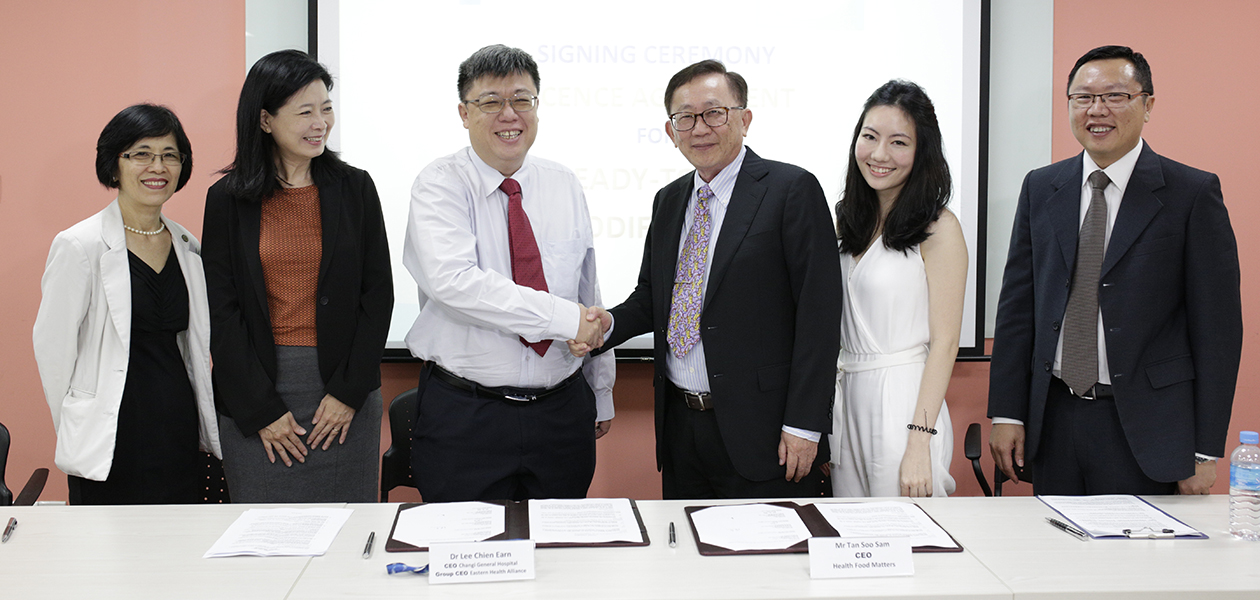Dysphagia refers to swallowing difficulty. While it can affect anyone, it is more common in the elderly and patients who have had a stroke. Singapore nutrition SME, Health Food Matters (HFM), was keen to partner a local technology partner to develop texture-modified meals in local flavours so as to meet the growing market demand.
HFM was introduced to Changi General Hospital (CGH) by the National Healthcare Innovation Centre (NHIC) at TechInnovation 2015, a technology-industry brokerage event organised by IPI. CGH had developed an in-house technology to produce texture-modified meals that would be safe and delicious for people with swallowing difficulties. A licensing agreement that was inked between HFM and CGH on 19 September allows HFM to produce and market the products in Singapore, Japan, New Zealand and Australia using the formula and recipes from the hospital. The meals are expected to be available from January 2017.
“Many people with dysphagia do not look forward to their meals, resulting in a loss of appetite. With our expertise in specialised nutrition, we hope to help people with dysphagia rediscover the joy of eating through CGH's ready-to-eat, texture-modified meals," said Ms Grace Gan, co-founder of HFM.
“Dysphagia is a growing health concern in Singapore due to the rapidly ageing population. We are pleased to have found a like-minded partner in Health Food Matters to produce these meals for a wider audience, enabling us to continue focusing on research and development in dietetics to meet patients’ needs,” said Magdalin Cheong, Deputy Director, Department of Food Services, CGH.
To date, a total of 14 local recipes such as Braised Ginseng Chicken and Sweet and Sour Fish, have been developed by CGH. The meals are available in three textures - finely minced, coarsely minced or blended. In addition to meeting the nutritional requirements, the ready-to-eat meals make preparation convenient and fuss-free for the caregivers.
The partnership between Changi General Hospital and Health Food Matters represents the successful push to develop healthcare innovations that improve healthcare delivery and patient care in the face of Singapore’s greying population. We are glad to have supported this journey to commercialisation, which will ultimately improve the quality of life for people with dysphagia, as well as their caregivers,” said Teo Cher Hwa, Deputy Director, NHIC.
Success Stories
18 Oct 2016
Technology Cooperation Brings Local Ready-to-eat Meals for People with Swallowing Difficulties

More success stories that may interest you
Success Stories|
8 Dec 2025
From Hidden Leaks to Smart Fixes: How Le Fong Transformed with Innovation from TechInnovation 2024
Success Stories|
25 Sep 2025
